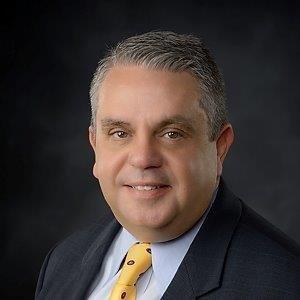Inspire and energize employees to work with passion
By Dave Willis, CPIA
July 21, 1969. The day Neil Armstrong became the first person to set foot on the moon. And the day when NASA fulfilled the first part of the challenge that President Kennedy shared with a joint session of Congress in May 1961: “I believe that this nation should commit itself to achieving the goal, before this decade is out, of landing a man on the moon and returning him safely to the Earth.”
“That was an epic day,” said Mark Galante, senior vice president and chief marketing officer at PURE Insurance, speaking at the 2016 PRMA Summit, an event hosted by the Private Risk Management Association, which brings together influential leaders in the high-net-worth industry. “Really powerful.”
Also powerful was an exchange that reportedly occurred not too long after Kennedy’s address to Congress. “The President visited NASA in Cape Canaveral in the early days of the space program and came upon a janitor,” Galante explained. “He asked, ‘What do you do for this organization?’ The janitor responded, ‘Well, Mr. President, I’m here to help put a man on the moon.’”
That janitor clearly recognized NASA’s purpose. “Purpose is ultimately why we, as companies, exist,” Galante said. “It’s why we get up to go to work every day.”
Yet there are thousands, maybe millions, of organizations whose purpose is to make money, and not much else, explained co-presenter David Spencer, PURE’s senior vice president for strategic business development, member engagement and national broker relationships. “Purpose has to be more than just making money. It looks at why you do what you do.”
Interestingly, focus on purpose can drive profits. “Explicitly purpose-driven organizations deliver six times the return to investors,” Spencer said. “They enjoy distinct profits and a competitive advantage because they have customers and consumers—and in our business, policyholders—who specifically feel bonded to them and their products because of the company’s purpose.”
People benefits exist too. “Two-thirds of employees surveyed said that purpose would make them go the extra mile—work on the weekend or stay late to do a project,” he added. “It’s because they know what the end goal is. Fifty percent would take a pay cut to work for an inspired organization. And the number two issue for employees is that they want clear purpose and definition about their role and the role of the company.”
“By the way, purpose is particularly important to Millennials,” Galante added. “We spend a lot of time in our industry talking about how we can attract, hire and retain Millennials. You can see in all the data that having a shared sense of purpose is really important to them. From day one—from the recruiting process through training and beyond—we really try to emphasize purpose.”

—David Spencer
Senior Vice President for Strategic Business Development, Member Engagement and National Broker Relationships
PURE Insurance
Purpose-driven companies
Focus on purpose is nothing new. “It didn’t start with this generation,” Spencer noted. “Look at Disney. Almost everybody has been to a Disney theme park. You may know they call their employees cast members. And since the first park opened in 1955, all those cast members have had a purpose: to make the Disney properties the happiest place on earth.
“That goes from the characters, who bring happiness to our kids and grandkids, all the way to the parking lot attendant, to the person who’s trimming the topiary shrubs, to the tram drivers. Everybody shares that singular purpose—to make it the happiest place on earth.”
As another example, Spencer pointed out that college grads likely wouldn’t want to work for a household cleaning product company “unless you’re talking about Seventh Generation. The company makes household cleaning products that it says will help conserve the environment for ‘the next seven generations.’
“Do you know how many college students want to work for this company? Thousands and thousands more than they have jobs for. Why? Because they have a purpose. It’s not just about creating a cleaning product that does a good job. It’s that they can be proud of the purpose of the products they’re selling.” Seventh Generation is a certified B Corporation—see the October 2016 issue of Rough Notes.
Sometimes purpose is less obvious. “Let’s look at KPMG. Who thinks an accounting and auditing firm could possibly have purpose beyond … I mean, they’re accountants, right?” Spencer said. “Yet KPMG created purpose; they literally believe that they change the world. And they’re accountants.”
At the PRMA Summit, the PURE execs played a KPMG video that showed the company’s role in defeating Nazi Germany, resolving the 1980 Iran hostage crisis, and overseeing the South Africa election of Nelson Mandela. “We’re all here for a purpose,” the video narrator said. To “Inspire confidence. Empower change.”
“Pretty impactful, right?” Spencer asked. “And 27,000 KPMG employees believe it.” As part of the campaign, in June 2014, the firm asked employees to share stories about how they’re changing the world. They hoped to elicit 10,000 stories by Thanksgiving. If they met the goal, employees would get two additional days off at the end of the year.
“That seems like pretty great motivation,” he said. “Let me explain how the motivation worked. Not only did they get 10,000 stories; they got 10,000 by July 4. By Thanksgiving they had 42,000 stories—personal stories—from just 27,000 employees.” KPMG shared stories using posters that talked about how employees champion democracy, help farms grow, combat terrorism, help nations heal, and more.
“The company released this pent-up energy their employees had, but that only surfaced when they empowered them to have purpose in their jobs and roles,” Spencer noted. “It’s an amazing story, from a very unlikely-seeming company that all of us know.”
Presenters also shared examples of insurance agencies with a focus on purpose. One is Jackson, Mississippi-based Ross & Yerger. “Their purpose—their answer to the question ‘Why Ross & Yerger?’—is ‘We exist to cultivate a future of hope, prosperity and security,’” Galante says. “That’s a lot better than ‘We insure what’s in our back yard.’”
Rough Notes’ September 2009 Agency of the Month MJ Insurance, based in Indianapolis, is another example. “They say, ‘MJ Insurance exists to inspire the success, fulfillment, and well-being of each person we serve: our associates and their families, business partners, clients, and our community. We make the organizations we work with better, smarter, and more efficient. And we’re changing the way people think about insurance—always raising the bar about what you should expect from your insurance and risk management agency.’ It makes you want to apply,” Galante commented.

—Mark Galante
Senior Vice President and Chief Marketing Officer
PURE Insurance
Finding purpose
As a policyholder-owned insurer, PURE refers to its insureds as members—and member engagement plays an important role at the firm. It serves as the foundation for the purpose statement the company developed to drive its actions. Galante and other members of PURE’s executive leadership team collaborated to produce the purpose statement—a task that Spencer described as “hard work. But it’s really, really meaningful. It’s the cornerstone of creating a purpose-driven culture.”
PURE’s purpose is simple: We make our membership smarter, safer, and more resilient, so they can pursue their passions with greater confidence. “It’s not a cliché, and it’s not hyperbole; it’s real,” Spencer said. “If one of our policyholders has a claim, it’s not just for us to settle it really well. It’s about letting them get on with their life, getting to what they really want to do. Because what they really don’t want to do is be involved in their insurance claim or anything that takes away from their life’s passions.”
He added, “Those simple words—smarter, safer, more resilient—are baked into everything we do. We live and breathe that every day. It doesn’t matter whether it’s a risk manager, a claims person, a product person, an actuary, or anyone else—everything we do is based on making our members smarter, safer, and more resilient.”
Spencer and Galante offered tips for leaders looking to build a greater sense of purpose into their operations. “It cannot be an entirely top-down approach,” Spencer said. “No matter how much the person at the top really believes in it, you can’t force people to have purpose. They need to adopt it on their own or, better yet, be involved in the creation of the purpose.”
It also can’t be based solely on a specific objective. “It can’t be designed to simply raise sales or improve profitability or even drive greater customer satisfaction,” he added. “It has to be something that boils right from the heart.
“The price of admission for all of us in commerce is that we want to make money,” he added. “You wouldn’t be in business if there weren’t a product to be created, a product to be sold, a profit to be made. So that’s baked in for everybody. What’s your real purpose beyond that?”
Galante echoed the sentiment. “Purpose has to be authentic,” he said. “It can’t be marketing. And it’s not just about money. It has to be that more noble cause. Whom would you rather work for—a company that exists to maximize value for shareholders or a company that is creating the happiest place on earth?”
He pointed to an online resource to jump-start the process. “If you’re someone like me who has ADD and you want a really quick but great synopsis of purpose, go to TED.com and watch Simon Sinek’s video, ‘How Great Leaders Inspire Action,’” he said. “You’ll embrace it more when you see that.” Sinek wrote a book, Start with Why, that Galante calls a “300-page version of the 14-minute TED talk.”
Spencer spelled out “why” to focus on “why.” He said the difference between having purpose and not having it is the difference between managing and mobilizing. Without a purpose, “you can have great employees who you can manage to do what you want them to do,” he said, “or you can mobilize them with purpose to go out and accomplish greatness.”






